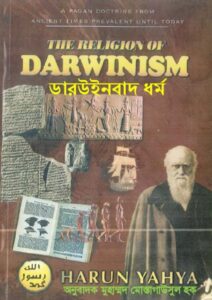
Friday, 28 June 2013
The Financial Express
The London-based Global Coal Management (GCM) Resources Plc (formerly Asia Energy) has announced formation of a new board of directors headed by Polo Resources Limited Managing Director Michael Tang.
Neil Lindsey Herbert, co-chairman and managing director of Polo, and Guy Elliott, founder of F3 Capital Management LLC, an independent alternative asset management and advisory firm, have also joined the new board as non-executive directors.
Chief Executive Officer (CEO) of GCM Resources in Dhaka, Gary Lye, has stepped down as a director of the board, but assumed the role of chief operating officer of GCM, said a statement of the firm.
Gerard Holden, Stephen Dattels and Greg James have also resigned as non-executive directors. An independent non-executive director is expected to be appointed in due course, said the GCM in its statement posted on its website on Wednesday.
Several officials of the company in Dhaka and London, including two Britons, were also removed early this year after the company had sustained a big financial loss in 2012, company sources said.
With the change in the board, the coal exploration company has also announced the appointment of ZAI Corporate Finance Ltd. as its nominated adviser. It has also named Investec Investment Banking as its sole broker.
Mr Tang, whose official name is Michael Vee Mun Tang, is also executive co-chairman and managing director of Polo Resources, a Canadian Investment Fund owning 30 per cent of the total shares of GCM.
Michael Tang is the principal of Malaysia-based Mettiz Capital Limited (‘Mettiz’), an investment company with significant corporate and financial experience in natural resources, power generation, manufacturing and real estate.
Recently, GCM appointed Mettiz, a lobbyist in Bangladesh to get approval of the government for commercial exploration of the Phulbari coalmine, for which the company has been trying for more than a decade.
The change in the board of directors has been made after the Organisation for Economic Cooperation and Development (OECD) agreed early this month to consider complaints of human rights violation against GCM in the process of its planned coalmine exploration in Phulbari in northern Bangladesh.
The acceptance of the complaints by OECD for investigation into the alleged human rights violation at Phulbari coalmine site dealt a serious blow to GCM, which has been struggling since late 1990s to get government approval for exploration of the coalmine with an estimated reserve of 572 million tonnes of high-quality bituminous coal.
The complaints lodged by the International Accountability Project and the World Development Movement alleged that the planned exploration of Phulbari coalmine would violate the human rights of indigenous people from 23 different tribal groups, and destroy nearly 12,000 acres of Bangladesh’s most fertile and productive farmland, according to recent media reports.
However, GCM appealed to the OECD to reject the complaints, but the UK National Contact Point, the governmental body that addresses violations of the OECD guidelines by British companies abroad, has agreed to pursue the issue.
Meanwhile, GCM has engaged Mettiz as its adviser to conduct the official formalities for getting the approval for coal exploration and setting up a mine-mouth coal-fired power plant at Phulbari under Dinajpur district, according to the agreement made available to the FE.
The GCM Resources, which has been making attempts since 1995 to explore Phulbari, estimated to have some 572 million tonnes of highly bituminous coal, has started downsizing its operations in Bangladesh.
According to the deal signed with Mettiz in March, GCM will award the lobbyist firm a directorship of the company, if the Malaysian firm can get the approval by the end of the 2013.
However, there is no clear sign yet whether Mettiz could have made any headway in getting approval for the exploration. But Finance Minister AMA Muhith said recently that his government would favour an open-pit mining system for any exploration of coal in the future.
But a source in the ministry of energy power and mineral resources said any approval for coal exploration was unlikely during the remaining tenure of the government as the next general election was due in January next.
Meanwhile, a short of parley by a strong section of local people in and around Phulbari has been visible over the past few months as different groups held several public gatherings demanding regional development including exploration of hidden resources.
If explored, the Phulbari coalmine is likely to create 17,000 new jobs and ensure livelihood for 40,000 people feared to be affected during exploration over the next 35 years.
Bangladesh has five coal fields with estimated reserve of some 3.0 billion tonnes.
The Phulbari mine would help not only in generating up to 4,000 megawatt (MW) electricity but also moving the country fast towards its goal of getting 50 per cent of electricity needed in the country from the coal-fired power plants, an official at GCM said.









